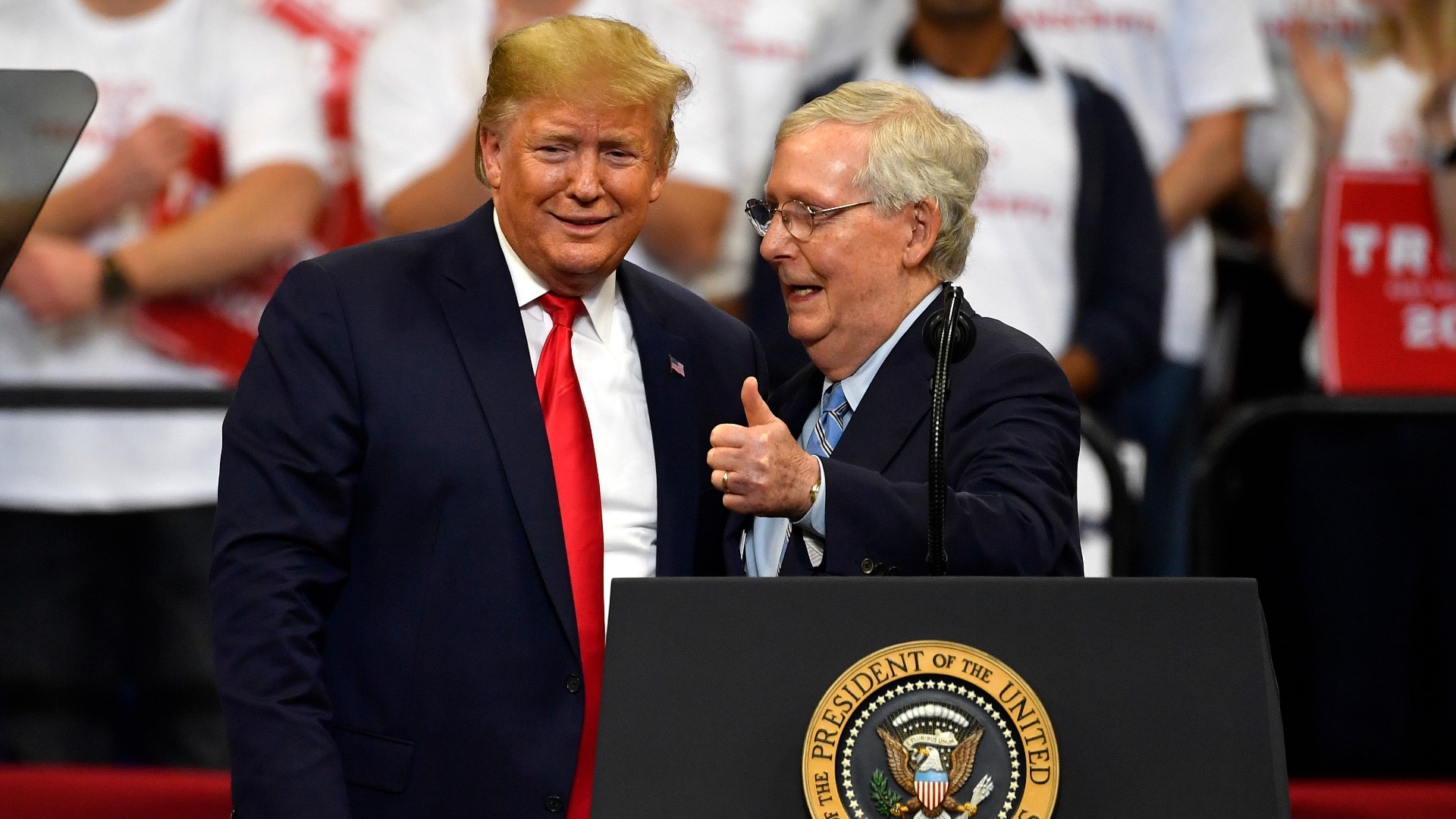Mitch McConnell’s endorsement of Donald Trump for president marks a significant shift in the dynamic between the two Republican leaders. McConnell, who previously criticized Trump for his role in the Capitol attack on January 6, 2021, has now thrown his support behind Trump’s bid to return to the White House.
Despite their past differences, McConnell’s endorsement lends credibility to Trump’s candidacy and underscores the former president’s influence within the GOP.
he timing of McConnell’s announcement, following Super Tuesday wins for Trump, signals a consolidation of support within the Republican Party behind the former president.
McConnell’s endorsement comes amid his own decision to step down as Senate Republican leader after his current term, and as he seeks to regain Republican control of the Senate.
With Trump likely to lead the GOP ticket in the upcoming elections, McConnell’s backing is seen as pivotal in rallying other Republicans and donors behind Trump’s candidacy.
Trump’s response to McConnell’s endorsement reflects a sense of unity within the party, with both leaders expressing their commitment to working together for the betterment of the country.
Despite their past disagreements, McConnell highlights their achievements together, particularly in economic policies and judicial appointments.
While McConnell’s endorsement may raise eyebrows given his previous criticisms of Trump, it underscores the pragmatism and political calculations at play within the Republican Party. By setting aside personal differences, McConnell aims to focus on advancing conservative policies and regaining Republican control of government.
McConnell’s endorsement of Trump represents a strategic decision aimed at uniting the Republican Party and maximizing its electoral prospects in the upcoming elections. It also highlights the enduring influence of Trump within the GOP and the complex dynamics shaping American politics.























